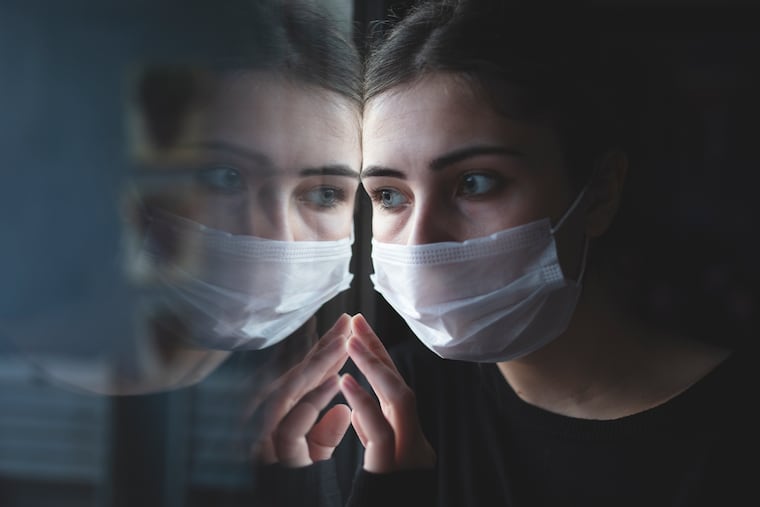If COVID-19 is an earthquake, the mental health aftershocks have only just begun | Expert Opinion
We must all be reminded to remain empathic first and foremost, stay cool, and take a deep breath when confronting uncontainable outbursts resulting from COVID-19 pandemic aftershocks.

If COVID-19 is viewed as an earthquake, then mental health effects are the aftershocks. The COVID-19 pandemic lockdown order and social distancing have led to loneliness experiences that can exert profound effects on physical, mental, and social well-being (the three pillars of health as defined by the World Health Organization). This begs for urgent attention.
Generally, humans evolved to form social connections for survival. A large volume of epidemiological research leaves no doubt that social relationships promote health and prevent illness. Loneliness can have detrimental effects on brain activities, immunocompetence, endocrine function, cardiac events, premature death, and a host of other physical, mental, and social infirmities. Lonely individuals are deprived of the buffering effects of human connection in mitigating stress. In addition, human connection has a fear-reducing effect that is most needed during this time of misery and distress.
The overwhelming experiences of fighting against an invisible enemy that knows no boundaries — fear of infection with no known prevention and treatment — and viewing family members and close friends as a potential threat to one’s own health has generated an unprecedented stress for all. In addition, learning about horrible events such as patients dying a lonely death with no loved one at their bedside, the despair of their family, and the agony of frontline workers who find themselves helpless has spawned stressful experiences beyond the normal tolerance of humans.
» READ MORE: My patient survived COVID-19. Now she’s afflicted by stigma. l Expert Opinion
These traumas provide a fertile ground for the development of post-traumatic stress disorder (PTSD) and render a considerable number of individuals in dire need of mental health services.
Given the harmful consequences of loneliness experiences, particularly during a stressful and fearful era of a highly contagious and deadly virus attack, mental health professionals anticipate higher rates of the mental health infirmities in the general population globally, including depression, anxiety, edgy and impulsive reactions, agitation, irritability, sleep disorders, hostility, hypersensitivity, mistrust, emotional detachment, broken relationships, domestic violence, spousal and child abuse, disrupted careers, increased suicidal and homicidal rates; in addition to increased social unrest, political clashes, and international conflicts.
» READ MORE: Philadelphia’s aging population needs help fighting loneliness | Opinion
In addition to concerns over injustice, perhaps one exacerbating factor contributing to the current social unrest and violence in the country could be the aftershock of stressful lockdown and ensued loneliness experiences.
Not all are equally affected by the aftershocks of the COVID-19 pandemic. There are some who need mental health and social services more than others. The detrimental aftershocks of the COVID-19 pandemic demand urgent prevention and treatment plans for targeted psychological and social services and training of professionals to properly care for those who have seriously suffered the brunt of the COVID-19 pandemic.
» READ MORE: How can we cope with isolation during coronavirus? Formerly incarcerated women give advice. | Perspective
Meanwhile, we must all be reminded to remain empathic first and foremost, stay cool, and take a deep breath when confronting uncontainable outbursts resulting from COVID-19 pandemic aftershocks. Ultimately, we will see the light at the end of the tunnel and shall emerge victoriously.
Mohammadreza Hojat is a research professor in the department of psychiatry and human behavior and the director of the Jefferson Longitudinal Study at the Asano-Gonnella Center for Research in Medical Education and Health Care at Thomas Jefferson University.